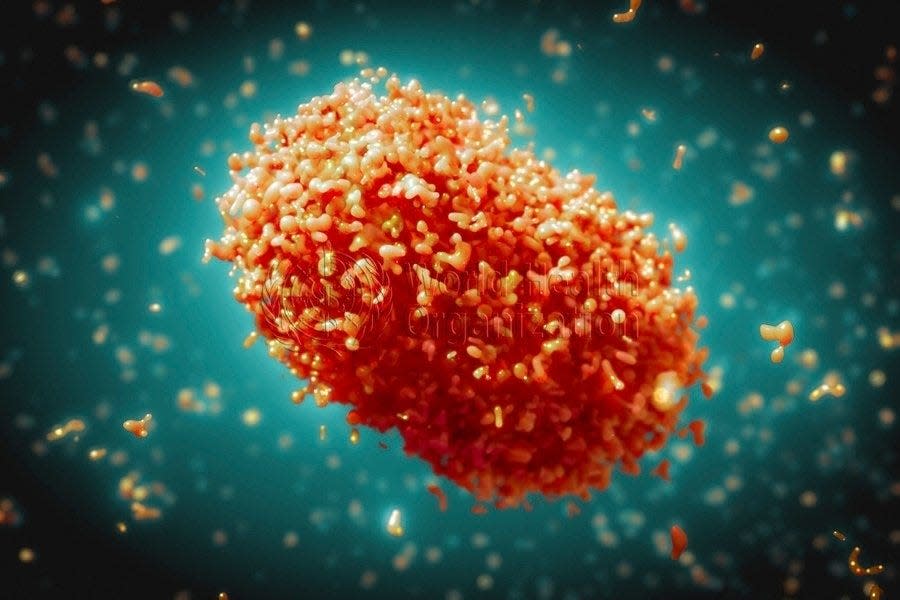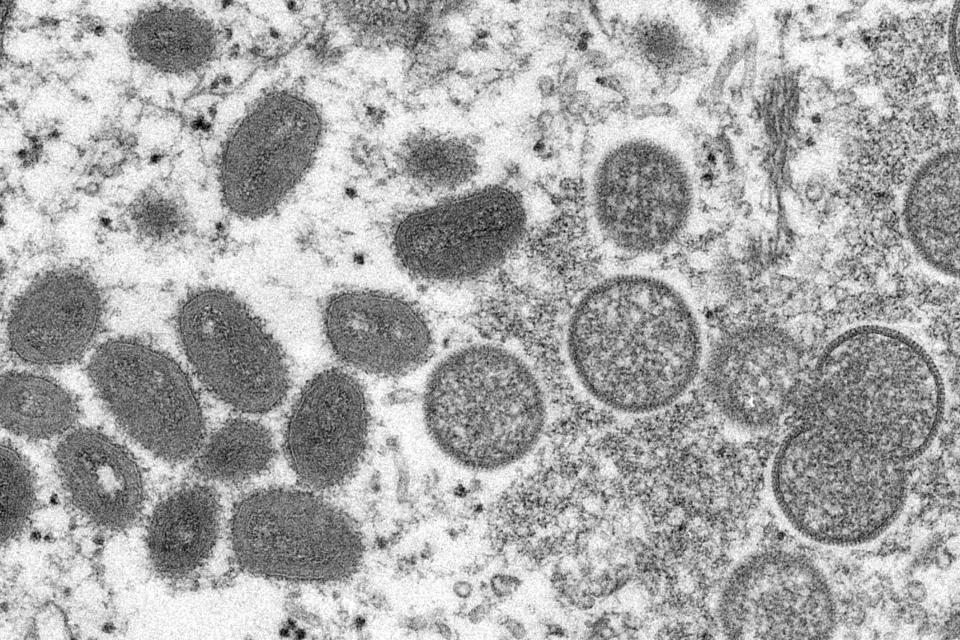Monkeypox is hitting the gay community the hardest, state official says
PROVINCETOWN — Monkeypox is probably already on Cape Cod, state Sen. Julian Cyr D-Truro, said at a recent virtual forum.
Monkeypox is a disease caused by infection from a virus, according to the federal Centers for Disease Control and Prevention. It can cause flu-like symptoms, swollen lymph nodes, and chills. It also causes a rash that looks like pimples or blisters, which can appear on the face, in the mouth, the anus, genitals, and other parts of the body.
The disease is rarely lethal, but can cause discomfort.
More: US to release at least 1.6 million vaccines to fight monkeypox by end of year, officials say
The first case of monkeypox was documented in Massachusetts on May 18, according to Kevin Cranston, the state's public health department assistant commissioner and director of the Bureau of Infectious Disease and Laboratory Sciences.

The total number of monkeypox cases in the Bay State was 21 on Thursday, the state announced.
More: What's trending this week in MA and nationally? Monkeypox, violins and bad country music
The outbreak is part of an international outbreak traced to the United Kingdom, Cranston said at the forum, hosted on Tuesday by the town of Provincetown.
Monkeypox is hitting the gay community the hardest, especially gay and bisexual men. However, Cranston emphasized that all people are equally at risk of contracting it.
Even though there are more cases amongst gay and bisexual men, there is no such thing as a “gay disease,” he said.
“Avoid blaming people for their identity. The virus is to blame,” Cranston said.
Provincetown is a hub for LGBTQ visitors during the summer.
More: OPINION/CARTOON: Is it mosquito bites? Poison ivy? Monkey pox?
How does it spread?
The rise of monkeypox cases in Massachusetts suggests “ongoing community transmission,” Cranston said.
The disease is spread through skin-to-skin contact, but can also be spread through extensive face-to-face, respiratory contact, though that form is transmission is less likely.
A person needs to be symptomatic to be contagious, he said. That can include flu-like symptoms and the emergence of skin changes, such as lesions and sores.
Though the virus can be spread through sexual intercourse, it is not strictly a sexually transmitted disease.
More: First probable case of monkeypox identified in Rhode Island
A person can be contagious for up to one month and is no longer contagious once their lesions are replaced by healthy skin.
The current monkeypox outbreak is different than previous outbreaks, said Catherine Brown, the state epidemiologist, in a phone interview with the Times.
Previous outbreaks were mostly confined to parts of Africa, where the virus originates, Brown said.
Can monkeypox be controlled/prevented?
A person should not have skin-to-skin contact with someone who is infected with monkeypox. The CDC also advises against sharing utensils, bedding, clothing and other similar material with someone who is infected.
Another way to prevent infection is vaccination. Vaccination is used primarily when someone has been exposed to monkeypox. The exposed person could then get a vaccination to prevent the exposure from turning into an infection.
However, the type of vaccine used for this is very limited in numbers, said Lawrence Madoff, medical director of the state Bureau of Infectious Disease and Laboratory Sciences, at the recent forum. There are only about 30,000 doses nationally, he said.
A person infected with monkeypox should isolate in their home until they are no longer contagious. If there are other people who reside in the home, then the person infected with monkeypox should isolate in a room.
More: How to get a vaccine against monkeypox in the US. Who should get one?
With the summer travel season approaching, people should be aware of their own health, Brown said in the phone interview.
"This is something that we should have learned from COVID," she said. An unexplained rash may need to get checked out by a health care provider.
People with monkeypox do get better on their own
So far, experience has shown that the disease is self-limited.
"People get better on their own,” said Madoff.
The disease is rarely lethal, but can cause disfiguration and pain from the lesions and sores. Lesions in sensitive parts of the body such as the anus are especially painful.

The seriousness of the disease is a spectrum, Brown said. One person could have lots of very painful lesions, while another could have fewer lesions with minimal pain, she said.
Some people, such as those with compromised immune systems, can get severely ill. However, such cases remain rare, Brown said.
What should you do if you're exposed?
A person who is exposed to monkeypox or infected should contact their doctor, Brown said.
Everyone has been through a rough couple of years during the pandemic, and people should be able to enjoy the upcoming summer, she said.
"I don't want to pretend we have all the answers."
Cases remain rare, though, and even people who are infected do not become severely ill, she said.
This article originally appeared on Cape Cod Times: Monkeypox cases hitting gay, bisexual men most but all are at risk

